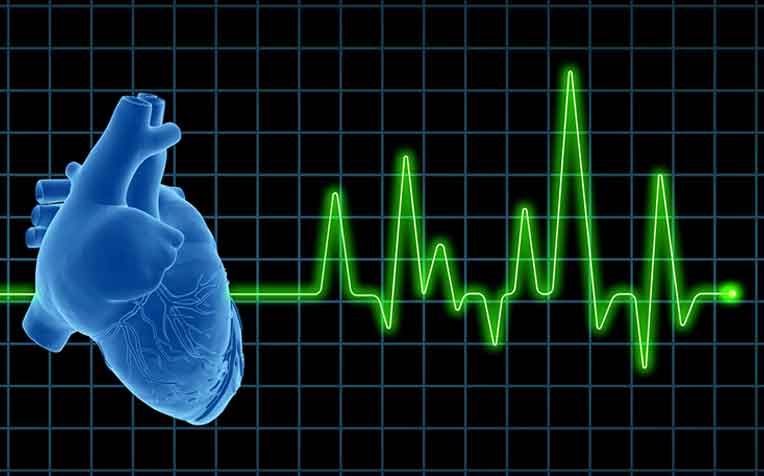
Heart palpitations are usually harmless but they may also be caused by heart conditions such as arrhythmia.
Cardiac arrhythmias: An electrical short-circuit in the heart
Of greater concern are heart palpitations caused by cardiac arrhythmias. Cardiac arrhythmias occur when there is a short-circuit in the electrical impulses controlling your heartbeat.
According to Clinical Associate Professor Ching Chi Keong, Senior Consultant from the Department of Cardiology and Director for Electrophysiology and Pacing at National Heart Centre Singapore (NHCS), a member of the SingHealth group, these electrical impulses are what will cause your heart to beat too rapidly, too slowly or irregularly.
When you have arrhythmia, your heartbeat either goes very fast, over 100 beats a minute (tachycardia) or very slow, less than 60 beats a minute (bradycardia).
Complications of cardiac arrhythmias
These arrhythmic heart palpitations can have serious implications:
Supraventricular tachycardia (SVT)
This is a prevalent arrhythmia in young adults This is experienced as a sudden burst of rapid heartbeats that begin and end abruptly, lasting for seconds or hours. SVT is usually not life threatening.
Atrial fibrillation
This fast and irregular palpitation occurs in the atria or upper chambers of the heart and could last a few minutes to an hour. Atrial fibrillation arrhythmias could become chronic and lead to stroke. It is seldom life-threatening, but the heart palpitations could indicate underlying coronary artery disease or heart valve disorders.
Ventricular tachycardia (VT)
Ventricular tachycardia is a very rapid, but regular heartbeat of 100 beats or more a minute occurring in the lower chambers (ventricles) of the heart.
Sustained heart palpitations lasting more than 30 seconds are considered a medical emergency. They could indicate pre-existing heart diseases such as coronary artery disease or heart valve disorders.
Ventricular fibrillation (VF)
If ventricular tachycardia is left untreated, it will lead to a life-threatening condition called ventricular fibrillation, characterised by very fast and very irregular heartbeats. It usually precedes a heart attack. You could lose consciousness within seconds and die within minutes.
Treatment of heart palpitations
Avoiding caffeine, alcohol and quitting smoking can help.
Doctors would normally prescribe oral medications such as beta-blockers and calcium channel blockers to slow down heart rates in arrhythmias.
For supraventricular tachycardia and atrial fibrillation arrhythmias, catheter ablation – a non-surgical procedure using radiofrequency energy – is a possible cure.
Heart valve disorders will require surgery.
When to seek emergency medical care
Seek immediate medical help if heart palpitations are accompanied by the following symptoms:
- Severe chest pain
- Shortness of breath
- Unusual sweating
- Loss of consciousness
It’s also important to consult a doctor without delay if you have pre-existing heart conditions or a family history of sudden death.
Read the previous page to learn about symptoms and causes of heart palpitations.
Ref: U11
Also, check out our other articles on heart health:
Sudden Chest Pains You Shouldn't Ignore
Heart Attack in Women: How Symptoms Differ From Men
How to Survive a Heart Attack When Alone
Heart Murmurs: Which Ones are Innocent? Which are Dangerous?
Sudden Death During Exercise: How It Occurs
Contributed by














 Get it on Google Play
Get it on Google Play